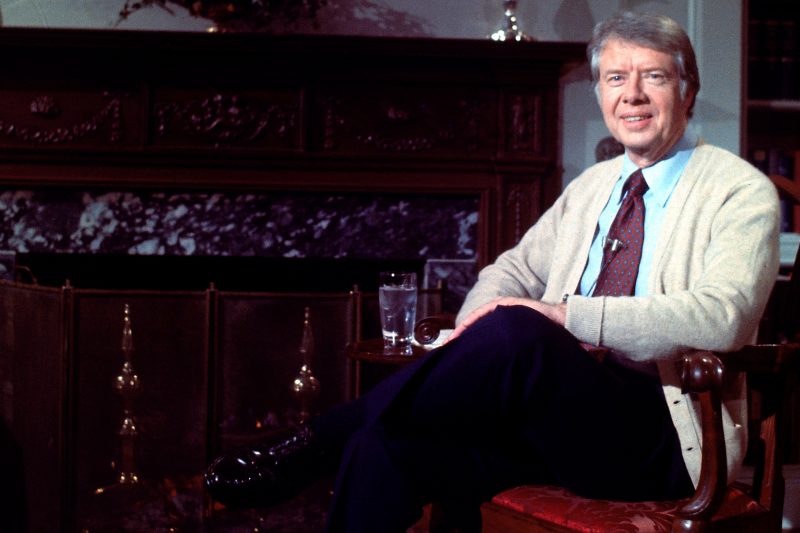
Jimmy Carter’s Sweater: The Fashion Choice that Sparked Years of GOP Outrage
The perception of a President in the minds of the populace often rests on more than just their political strategy or ideology. As history has shown, it often hinges on the portrayal of their public image, a surprisingly complex amalgamation of words, gestures, and even the clothes they don. The infamous spectacle of President Jimmy Carter donning a sweater to address the nation on energy conservation was one such event that has left a deep, lasting imprint on American political narrative, lighting the fuse of a Republican backlash that would last for years.
The story begins in 1977, with Jimmy Carter, a democratic peanut farmer from Georgia, newly installed as the President of the United States. In the grip of a full-blown energy crisis, Carter saw it fit to communicate, from his personal sphere, a message of austerity and conservation. He did so by ditching the customary suit for a homely, unassuming cardigan; a televisual display that was deeply symbolic, especially at a time when the nation was grappling with oil shortages and sky-rocketing fuel prices.
The image was strategically profound. It displayed Carter as a common man not shying away from wearing modest attire, sending out an indirect appeal to the American populace to embrace energy conservation, cut down on usage of heating fuel, and lower their thermostats. His words, I know this is hard for Americans…but we must face the fact that the energy shortage is permanent, further echoed this sentiment.
The symbolism was not lost on the American public. However, the intended message of solidarity and self-discipline was not perceived as Carter might have anticipated. The Republicans had, for long, been waiting on the sidelines, and they saw in Carter’s attire, a chance to pounce. They contended that this attire – a simple sweater – reimaged the Presidency, diminishing its sartorial elegance and grandeur as being synonymous with a leader of a powerful nation.
The Republican opposition accused Carter of initiating a crisis of confidence among the Americans, and his attire became unwittingly emblematic of a President who was siding with pessimism and collapse, rather than empowerment and hope. The subsequent Republican rhetoric painted him as a leader surrendering to foreign oil pressure, instead of striving to achieve energy independence. Carter’s sweater, meant to convey a message of unity, resilience, and sensibility, ironically became a narrative tool for Republicans to voice their critique and amplify political backlash.
Over the years, this incident has been revisited frequently in
